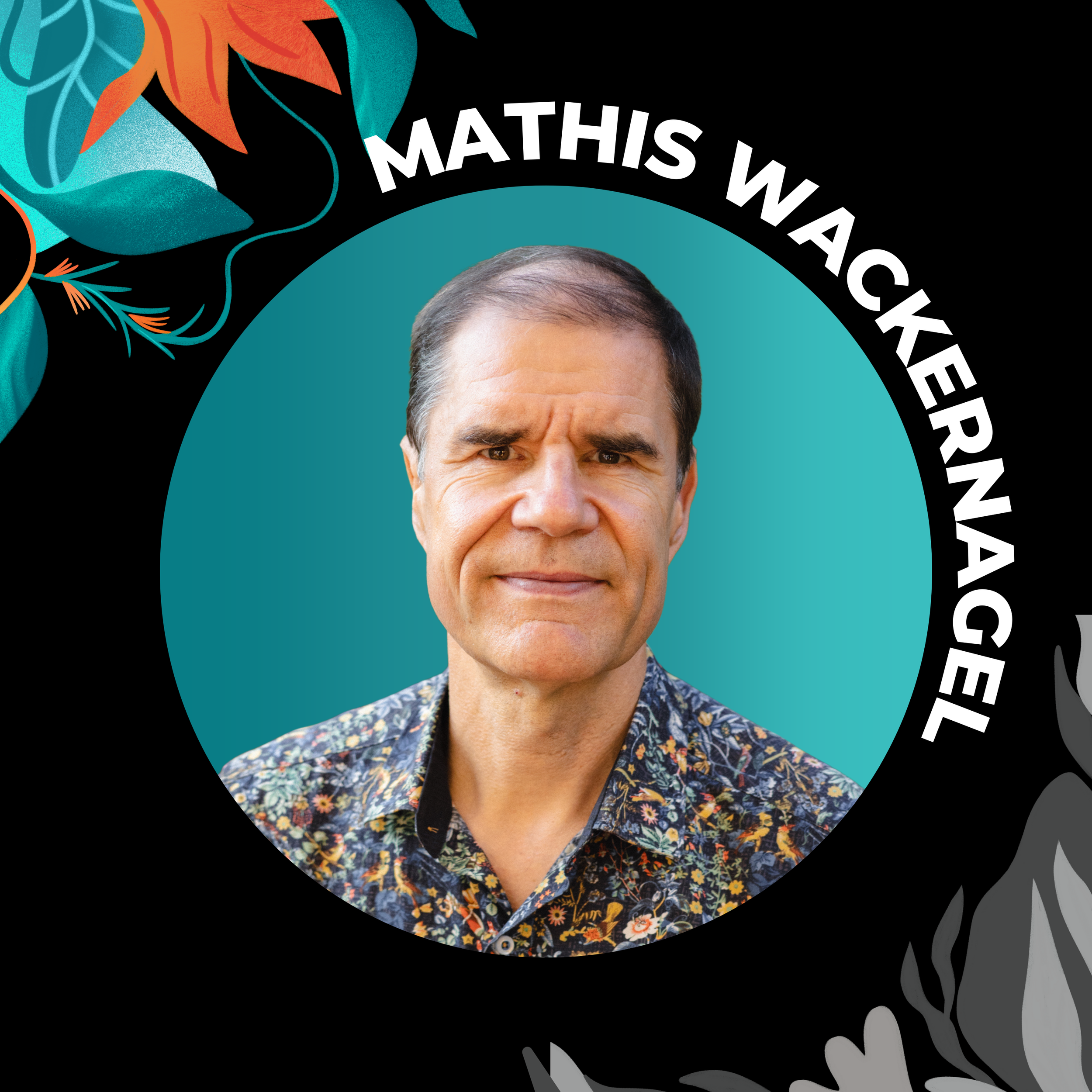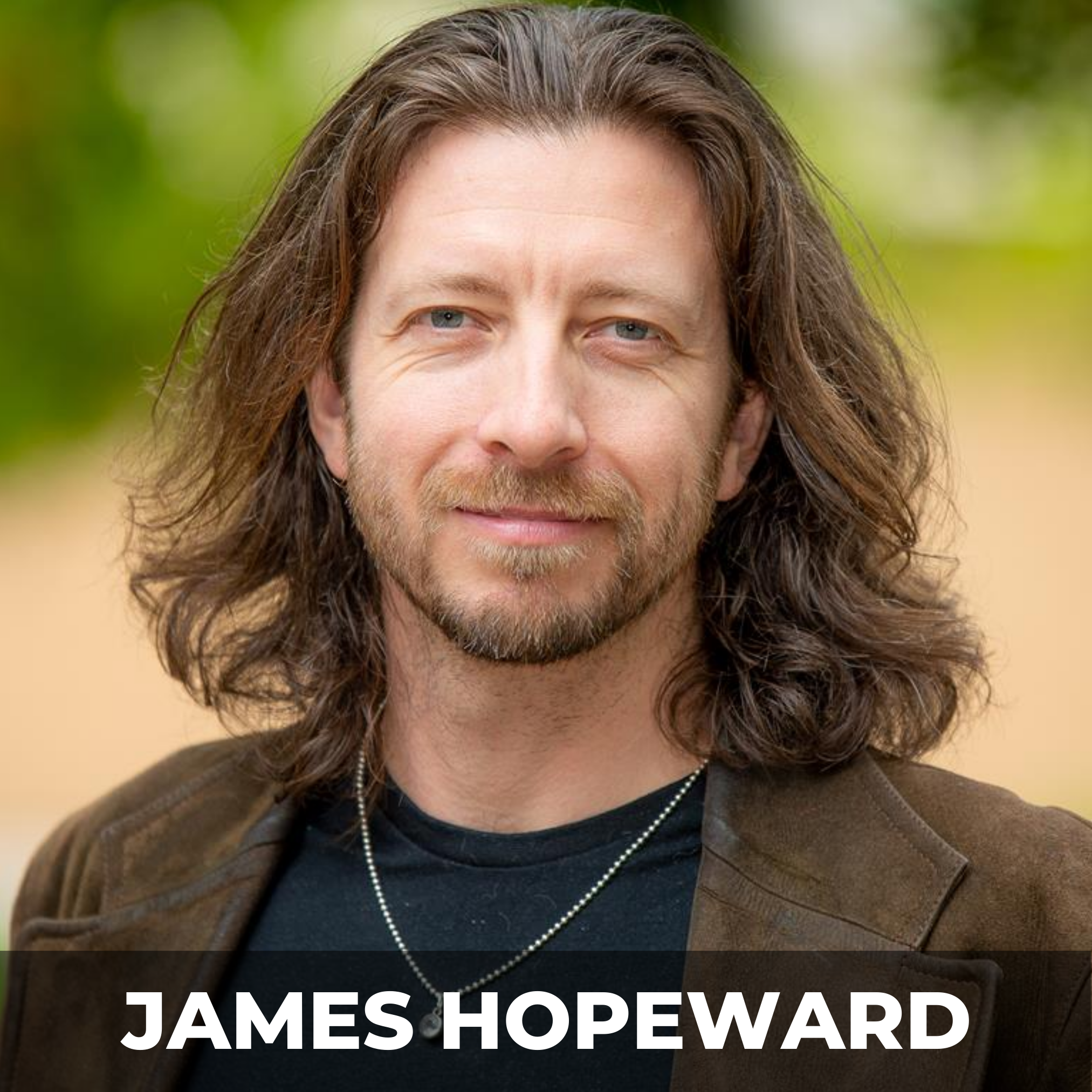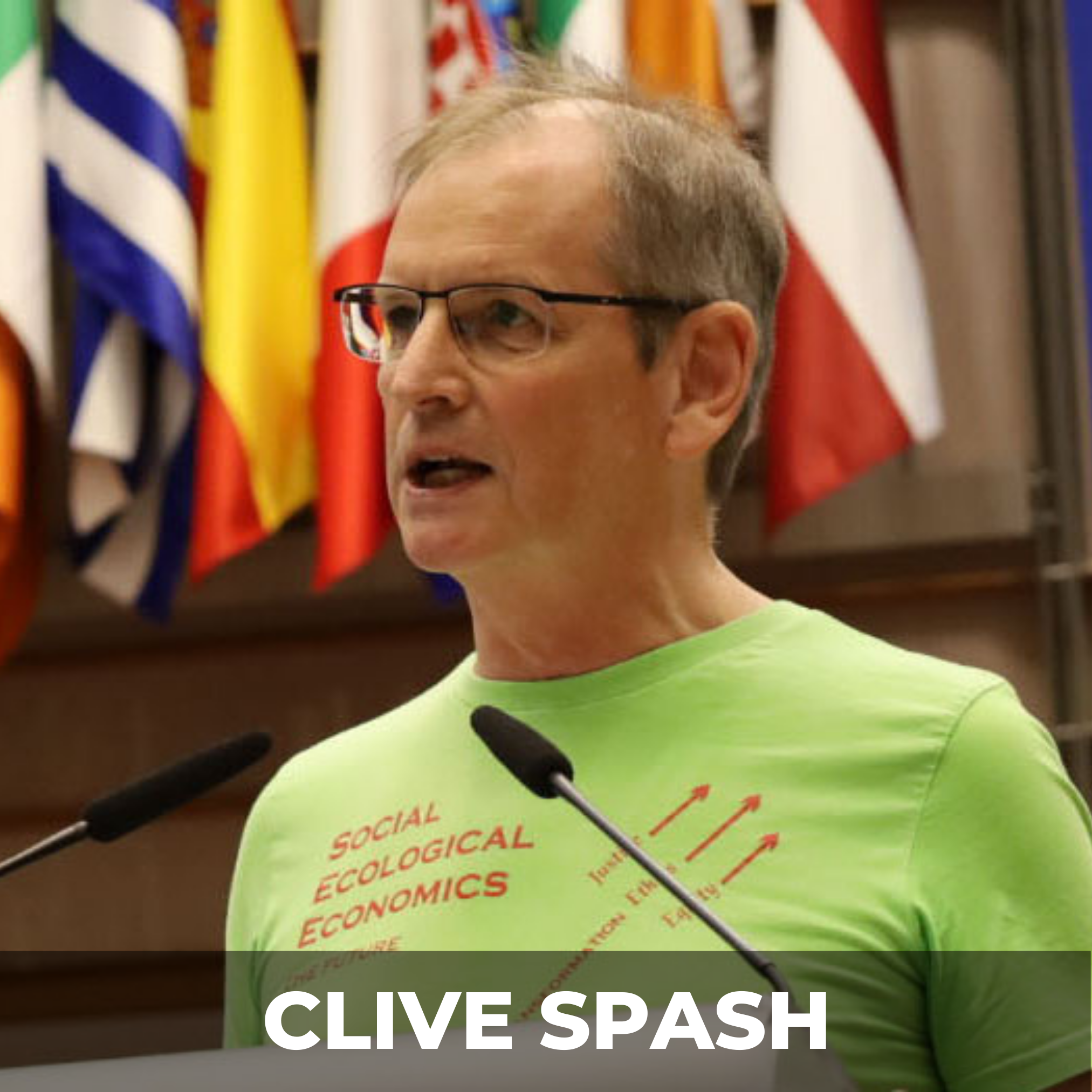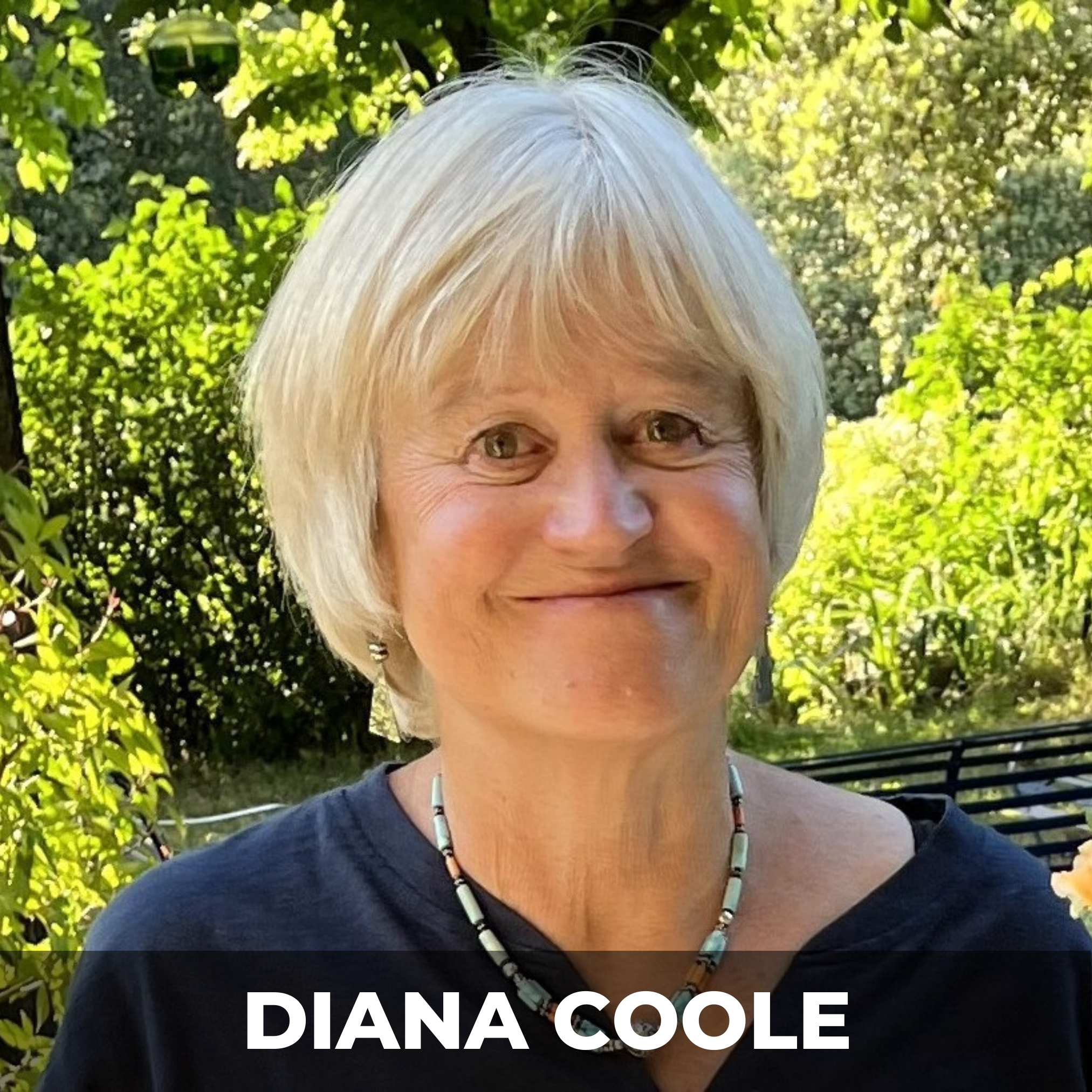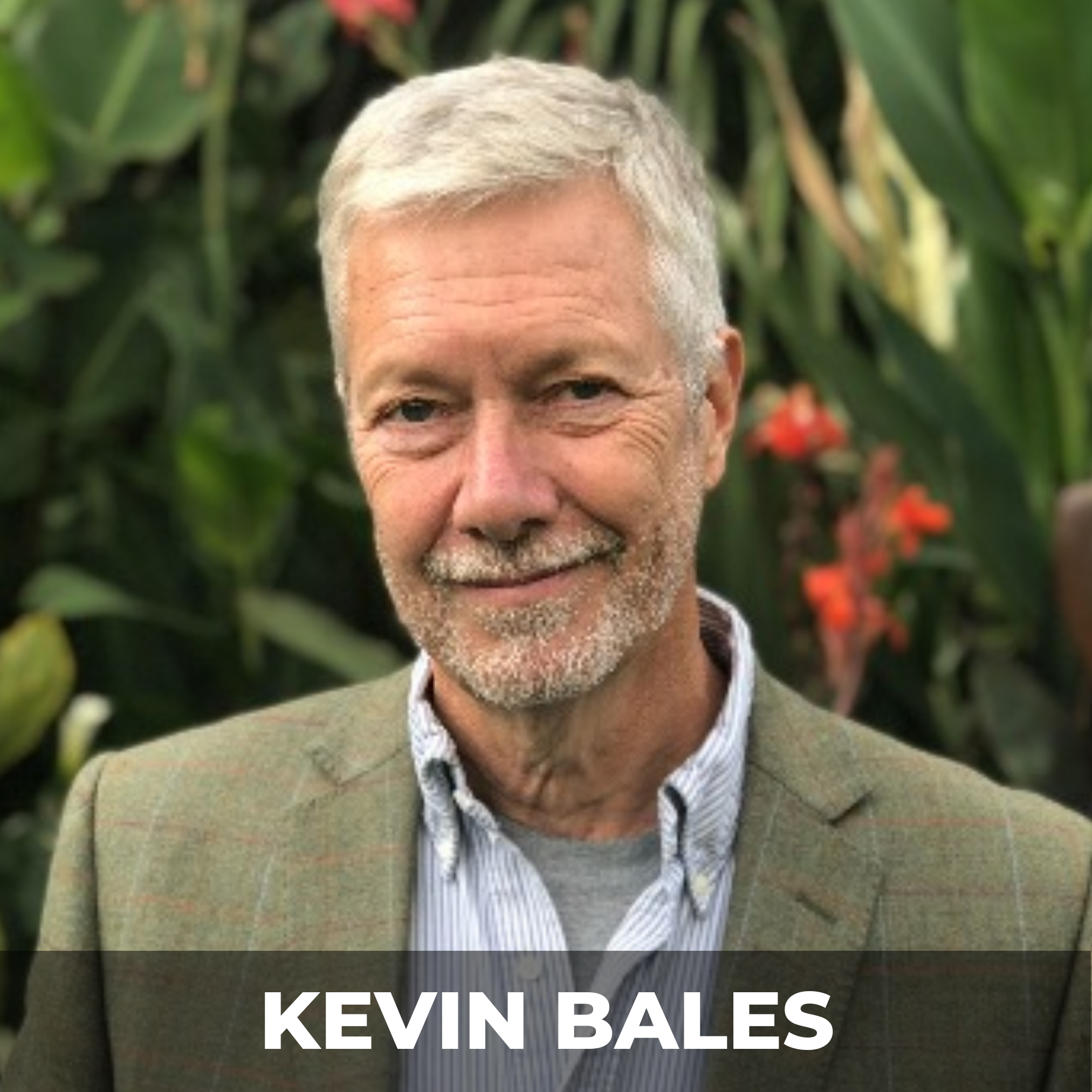Confronting the Population Taboo: Moving from Dominator to Partnership Societies
In this episode we speak with Riane Eisler, a social systems scientist, futurist, cultural historian, attorney, consultant, speaker, and author of many books, including The Chalice and the Blade and The Real Wealth of Nations, about how to construct a more equitable, sustainable and less violent world based on partnership rather than domination. Highlights include:
Riane’s childhood experiences of being a Holocaust survivor and living as a refugee in Cuba, which informed her study of contrasting societal models of dominator versus partnership;
How domination systems enforce violence through rigid rankings, while partnership systems reduce abuse through democratic structures;
How gender inequality, pronatalism, and population growth are integral to domination systems, and why engaging in population denial perpetuates hierarchies of domination within the family and within politics;
How partnership model values, such as caregiving and non-violence, were prevalent in pre-historic times and are more conducive to individual human happiness and flourishing;
Why examining past societies' egalitarian models can help us redefine power structures and gender in order to reconstruct models that are relevant in today’s societies.
MENTIONED IN THIS EPISODE:
Book: The Chalice and the Blade: Our History, Our Future by Riane Eisler
Book: The Real Wealth of Nations: Creating a Caring Economics by Riane Eisler
Book: Tomorrow’s Children: A Blueprint for Partnership Education in the 21st Century by Riane Eisler
Book: A World Without Women; The Christian Clerical Culture of Western Science by David F. Noble
-
Riane Eisler 0:00
We're all socialized to marginalize, really the majority of humanity, women and children; hence family, even though we spend so much of our formative early years in the context of these intimate family relations. And it's really directly related to overpopulation. Because if you look at the configurations of the domination system and the partnership system you don't see, using the conventional categories, that gender roles and relations are not quote just a women's issue. They are really a fundamental key social, family, and economic organizing principle. And you have to have rigid gender stereotypes in domination systems, because how else can you really rank one over the other?
Alan Ware 1:00
That was Dr. Riane Eisler, a social systems scientist, futurist, cultural historian, attorney, consultant, and speaker. In this episode of the Overpopulation Podcast we'll talk with Riane about how to construct a more equitable, sustainable, and less violent world - based on partnership rather than domination.
Nandita Bajaj 1:28
Welcome to the Overpopulation Podcast where we tirelessly make ecological overshoot and overpopulation common knowledge. That's the first step in right-sizing the scale of our human footprint so that it is in balance with life on Earth, enabling all species to thrive. I'm Nandita Bajaj, co-host of the podcast and executive director of Population Balance.
Alan Ware 1:51
I'm Alan Ware, co-host of the podcast and researcher with Population Balance. We are proud to be the first and only nonprofit organization globally that draws the connections between pronatalism, human supremacy, social inequalities, and ecological overshoot. Our mission at Population Balance is to inspire narrative, behavioral, and system change that shrinks our human impact and elevates the rights and wellbeing of people, animals, and the planet. And now on to today's guest. Riane Eisler, Juris Doctor and holder of multiple honorary doctorates is the recipient of many honors such as the Distinguished Peace Leadership Award earlier given to the Dalai Lama, and internationally known for her groundbreaking contributions as a system scientist, futurist, and cultural historian. She is author of many books, including the Chalice and The Blade, now in its 57th US printing and 27 foreign editions; The Real Wealth of Nations hailed by Nobel Peace Prize laureate Desmond Tutu as "a template for the better world we have been so urgently seeking"; and Nurturing Our Humanity, co-authored with Douglas P. Fry. Eisler's innovative whole systems research offers new perspectives and practical tools for constructing a less violent, more egalitarian, gender-balanced and sustainable future. Eisler is president of the Center for Partnership Systems, which provides practical applications of her work and editor-in-chief of the online Interdisciplinary Journal of Partnership Studies published at the University of Minnesota. She keynotes conferences worldwide, has taught at many universities, has written hundreds of articles and contributions to both scholarly and popular books, pioneered the application of human rights standards to women and children, has addressed the UN General Assembly, and consults to businesses and governments on the partnership model introduced by her work. For more information, see Rianeeisler.com, and Center for Partnership.org. And now on to today's interview.
Nandita Bajaj 3:57
Hello, Riane. Alan and I are so honored to have you on our podcast. You are such a broad systems thinker. And you've applied that systems thinking over many decades toward imagining how we might create a more peaceful, egalitarian, and sustainable future for both humanity and the planet. We're thrilled to have you here. Thank you so much for taking the time to be with us today.
Riane Eisler 4:22
It's my pleasure. And I love what you're doing, and I want to support it.
Nandita Bajaj 4:28
Thank you so much. And we'll begin, Riane, with a little bit about your background. So first, throughout your career, you've used an interdisciplinary systems approach to understanding the world. And you've used that systems thinking to develop what you've described as two contrasting types of societal structures - the dominator model and the partnership model. And you've described the dominator model as referring to a society that's organized around hierarchies of domination, coercion, and control - where power is maintained through fear and force. And in contrast, the partnership model represents a more egalitarian and cooperative society - emphasizing mutual respect, equity, and collaboration. And so we're excited to dig into those more deeply today. But we understand that you went through some disruptive experiences during your childhood. And they helped inform your thinking around these dominator and partnership models. And so we'd love to hear about those early childhood experiences before we go deeper.
Riane Eisler 5:41
Thank you Nandita. Well, really what drives my passion for this work, and yes I have a lot of passion for it, is rooted, deeply rooted in my early childhood experiences as a refugee child with my parents from the Holocaust. And I had to, during those traumatic years, of first in Vienna where I was born, and my father was taken away by the gestapo and my mother miraculously obtained his release. With some money that changed hands they were able to purchase a visa entry permit, really, to one of the two places in the world that at that time, admitted Jewish refugees, Cuba and Shanghai. And we managed to get one to Cuba. And I grew up in the industrial slums of Havana, because the Nazis confiscated, which is a formal word for armed robbery I guess, they took away everything my parents owned. Even after my parents got to their feet, started a business there, they couldn't be employed because of protective labor laws. So they had to start a business. But the questions were, Does this have to be this way? You know, when we humans have such an enormous capacity for caring, for consciousness, for creativity, why has there been so much insensitivity, cruelty? I witnessed that. Destructiveness, is it inevitable? And years later my multidisciplinary crosscultural trans-historical research addressed those questions, but I drew from a much larger database than most studies of human societies. My first book that told of these findings was The Chalice and The Blade, which is now in about 57 US printings and about almost 30 foreign editions. And then I really had to draw from a database that includes the whole of humanity. But the book that I wrote after Chalice was Sacred Pleasure. And the subtitle is Sex, Myth, and the Politics of the Body. And that book really foreshadows a lot of what I wrote later. And I really addressed the subject of population frontally.
Nandita Bajaj 8:23
We've appreciated that so much about your work, especially the direct addressing of the population question as it fits within the dominator model. And we also want to thank you for sharing your story, which is incredibly inspiring, and how you've taken your experiences and transformed them into a lifetime of tireless work in creating greater peace and partnership.
Riane Eisler 8:54
Well, what I've found, drawing from a database that, first of all, included those forms of humanity, because there are these basic two forms, female and male, in our species, as well. And so all of our history, including that long, long, long period that we call prehistory, which somehow is ignored despite all the archaeological and artistic and mythical, and lately, even DNA evidence that we have, that that period, in terms of the two models that I've introduced, for a long, long, long time human cultures oriented more to the partnership rather than domination side until during a period of great disequilibrium.
Alan Ware 9:48
Right, and you cover that in depth in your 2019 book with anthropologist Douglas Fry, the Nurturing Our Humanity book, and you go into the four cornerstones of a partnership society in some of your more recent work. So we'd like to start diving more deeply into that. And starting with a broad overview of the history of the models, which you were just getting into, the archeological, anthropological history of dominator and partnership, and what you've learned about that?
Riane Eisler 10:17
Well, it's very curious, because we're all socialized to marginalize or just ignore, really the majority of humanity, women and children and hence family, even though we spend so much of our formative early years in the context of these intimate family relations. And that is a huge blind spot in most analysis. So what I began to see, as you know, are underlying patterns that transcend the categories that we inherited, actually, from more rigid domination times, like right/left, religious/ secular, eastern/western, northern/southern, capitalist/socialist, etc. None of them really, first of all, describe the whole of the society. They all focus on this or that aspect. But none of them really tell us that there is an alternative. I mean, there have been despotic, violent societies in every one of these categories. I mean, think about it. Moreover, as I said, they all either marginalize or ignore the majority of humanity, women and children and hence family. And this, I think, is a fatal blind spot. And it's really directly related to overpopulation, of course, because if you look at the configurations of the domination system and the partnership system you don't see, using the conventional categories, that gender roles and relations are not quote just a women's issue. You know that they are really a fundamental, key, social, family, and economic organizing principle, because not only are women considered subordinate, and that is really an in-group versus out- group way of thinking that is drilled into us. But so is anything stereotypically in domination systems associated with femininity, like caring, caregiving, nonviolence. And you have to have rigid gender stereotypes in domination systems, because how else can you really rank one over the other? And what we need urgently to change is the reward system and that that is really a gendered system of values that we have unconsciously inherited, where anything considered quote, masculine, in domination systems, which is conquest, domination, you know, the hard values is superior to the soft quote values. And this is very harmful to men too because men only get to emotions, anger and contempt. But the soft emotions, they don't. In domination systems that's feminine. So we've got to start thinking in a systemic way that takes into account, as I said, the whole of humanity, and also where we all live, our families and other intimate relations.
Nandita Bajaj 13:50
Right. And you also provide in the book ample evidence that the dominator model does not align with what we've learned about what might be called human nature. As you've just spoken about, these really gendered notions of masculine and feminine have really divided us up into very limited roles, but also limited access to a full spectrum of human emotions and behaviors. Could you share with us some of the evidence that you've found that supports the notion that partnership model values are much more conducive to individual human happiness and flourishing?
Riane Eisler 14:32
Well, let's start with something very obvious. Because when something makes us feel good, we say, we love it. It's considered something soft, feminine, but love and caring is actually a prerequisite for human survival. And this whole argument between nature and nurture is a red herring, really, because what we know is that it is nature and nurture. And especially what children experience in their early five years, I mean this is a given now in neuroscience, profoundly influences nothing less than the structure of our brains, and hence how we feel, how we think, how we act, including how we vote. This is something that has to be taken into consideration. Fortunately, we can change. One of the incredible things about human nature, quote unquote, is its malleability. But its cultural environment is mediated through family, through education, through economics, through politics, through the gender roles and relations, profoundly affect this. And so what you have is study after study showing that all things being equal, which they're not okay, we would tend more towards caring, towards empathy. But in domination systems, where you have these rigid in-groups and out-groups, starting with the in-group of mankind and the female other, you have this model of our species, that difference. I mean, think about it, this is a basic difference in our species. Difference is equated with either superiority or inferiority, dominating or being dominated, being served or serving. And then that goes along with all the other in-groups versus out-groups, whether they're based on race, or religion, you know, anti-semitism, which almost caused my death, really, and killed most of my extended family, as I later found out after World War Two. This is not a coincidence. This is a pattern. When you look at domination systems, I'll quickly, if I may, give you the configurations, basic configurations, and it's really a partnership-domination social scale, or a partnership-domination biocultural lens that I introduced okay. A matter of degree, because no society orients completely either to the partnership or the domination or dominator configuration, but starting in the structure of not only the family, but also the state or tribe and the economic system. What you have in the domination system are these rigid rankings and this authoritarian top-down structure. As you move towards the partnership side, you really have much more of what we call a democratic, more egalitarian, less authoritarian. And we see trends in that direction. For example, there is a trend in child rearing today from authoritarian to authoritative. Why? Because children do need some kinds of limits, but how you enforce those limits varies a great deal. And this is another element of domination versus partnership systems, the degree of built-in abuse and violence. If you have these rigid rankings, ultimately, they are enforced through the threat of pain. So spanking, which I was shocked when I taught a course at the University of Alabama, to both graduate and undergraduate students, some of the graduate students didn't think that using a 'switch' on children was violence. I mean, this is crazy. I mean, what else is it for goodness sakes? So domination systems really enforce that those who are bigger and have more power can use violence against those who are smaller and have less power - starting in families. This is a basic lesson for fitting into a domination system, identifying as you must, denying, that those from whom you get what care you get, causes so much pain. Denial starts very early as that survival mechanism. So as you move to the partnership side, yes, there is some violence. We sometimes lose it. But it doesn't have to be built into the system. Gender is a key component, distinguishing these two systems, and we've already touched upon it - rigid gender stereotypes, ranking of male and quote, masculine, over female and quote, feminine. Move to the partnership side, you have a more egalitarian system, and you have the valuing of care for people starting at birth, and for caring for our Mother Earth, in both women and men. And finally, you have story and language. And I had to make up some words, like we need parents, we need teachers, we need managers, we need leaders. So I had to introduce this distinction between hierarchies of domination and hierarchies of actualization. But I believe in human creativity, and I think we can recreate, not go back to some good old days. But if we know the configuration, we can build it again. And we see a lot of trends in that direction today, countered by enormous resistance, and of course, massive regression to the domination side.
Nandita Bajaj 22:21
Yeah, you've started discussing the issue of population within a dominator model, and how overpopulation is an extension of the dominator model. And you've discussed in your book, Sacred Pleasure, and you know, in recent writings, such as for the Great Transition Initiative, that it has become taboo to talk about overpopulation in relation to the environment, even in liberal circles. And that's certainly been our experience. And that's really why we exist is to remove that taboo. And as you capture in those pieces, there is a prevalent belief among progressives that efforts to stem population growth are part of a genocidal plot against the developing world. And part of that concern stemmed from a backlash against coercive population control policies, again, population policies that came from a dominator model, right. You're taking an issue that came out of a dominator model, which is overpopulation, and now you're trying to address it using a dominator model. But you've also found that so much of this narrative was exaggerated by the religious fundamentalists, the Vatican, the Catholic, and the Muslim leaders, for the purposes of furthering their own traditional patriarchal agendas to keep women in their traditional subservient place, by opposing family planning. And also by denying women other life options than just being wives and mothers in these male-controlled families. You saw all that unfold right in front of your eyes in 1994 at the Cairo conference with the UN Population and Development Conference. Can you share some of that history and describe, in your view, how that represents this dominator morality?
Riane Eisler 24:19
Well, in Sacred Pleasure, as you know, I make a distinction, which actually was made by my late partner and husband, David Lloyd, between dominator moral insensitivity, and partnership moral sensitivity. One of the tenets is lack of empathy, of course, for the out-group, you know, whether it's women or a different race, or a different religion, a different ethnicity. It doesn't really matter. It's very compartmentalized. And that is fundamental to domination systems. And I mean, yes, there was population control - famine and war. And do we really have to go back to that? Today, we have such effective family planning methods. And when we know, from every single agency for population change, for progress really, that if you don't provide women, yes women, with family planning and with other options in life than burying men, children, preferably boys, of course, is a lost cause. But that is exactly what is integral to domination systems, whether it's the Taliban, or fundamentalist Iran, religious eastern societies, whether it is Putin's Russia, whether it's Stalin's former Soviet Union, whether it's Hitler's Nazi regime. I mean, a lot has been written about Hitler's Nazi regime in popular writings, but there are studies showing how systematically the Nazis, they changed the norms. And during the Weimar Republic, women had more sexual freedom. There was more equality between women and men, and they completely reverse that. And I cite these writings by both women and men, and they are suppressed. They are ignored, because we have this blind spot about gender not being integral to regressions - violent, authoritarian. I mean, you mentioned Putin. Putin supported a law in Russia, which is well known for femicide, okay, lowering the penalty for family violence, lowering it. Why? Why would he do that, compared to you know, so now if you kill the woman or a child or you hurt a woman or a child or a man in the family, your penalty is less, substantially, than if you kill or hurt a stranger. Why would he do that? Well, he gets it. He gets the connection, as do the Taliban, between, as does a Khomeini's Iran, you know, fundamentalist Iran, as did Hitler, as did Stalin between a family that is authoritarian, rigidly male dominated, violent, and punitive and that kind of a state or drive. We have to make connect the dots. And it's very difficult to connect the dots when these huge lacuna, I mean we have the stats of women, children family, are somehow not considered as part of the picture. And as I said, neuroscience shows this.
Alan Ware 28:02
Yeah, and you've really talked about relational dynamics and studied relational dynamics in your systems thinking, right?
Riane Eisler 28:09
Relational dynamics, that is my methodology. And it not only studies what kinds of relationships does a social system support or inhibit, but it also studies the relationship because in complex systems and social systems or complex living systems, for goodness sakes, you can't just look at linear causes and effects. You will have to look at interconnections. And interconnection is a very tough subject in our minds, because we're not taught anything that way. But they are mutually supporting. Those four elements that I mentioned of social, economic, and family systems.
Alan Ware 29:00
Yeah, and as you've referred to, so much of the teaching of the history of authoritarian governments or political economy, I don't remember hearing much about the family system.
Riane Eisler 29:11
Well I was recently reviewed by a top editor in the Scientific American, and you can get that interview if you just put in my name and Scientific American. It's really starting with the finding and it isn't just my finding, but the systems approach has to be used, of seeing why authoritarian systems insist on that kind of family. I mean, it's obvious.
Nandita Bajaj 29:41
It's so obvious, because within that family dynamic of that dominator model, you can see children being inculcated at a young age, and learning that violence and that these gendered divisions are normal and moral and legitimate. And as you say, the emphasis from the state on the family, like family being the starting unit of the dominator model, it's a very successful, very effective model, because the state doesn't need to do a whole lot of stuff if it can convince the families to be the puppets for the state. You can continue to emphasize that women's primary role is that of mothers and wives, and that further feeds into this economic growth model of the state. Because the state needs a growing population to grow its economy and to grow its military. It feeds into two even larger dominator models - of socioeconomic inequality, but then also this militaristic domination over other nations, states, etc.
Riane Eisler 30:55
As I said, it is both so obvious, isn't it? But it isn't obvious when so much of our education, you know, David Noble, who is a historian of science, wrote a book called The World Without Women, and he talks about western science is starting in the all male, clerical, celibate, and yes, misogynist, environment. And, of course, we're challenging some of that. I mean, there are more women scientists, you know, who, especially some of them have come to be noticed, like the observers of animals, who put themselves empathizing with them, and how they have really come up with findings that were once ignored. But the point that I'm making is that we are all socialized - whether we consider ourselves liberal or conservative, which are nonsense, because conservative, what are they conserving? They're conserving domination systems, certainly not conserving our Earth. But you mentioned economics, and I really want to talk about that, if I may, because, see, both capitalist theory and socialist theory, both Smith and Marx actually challenged a tradition of domination. Smith challenged mercantilism, you know, the top-down control of kings and so-called nobles. And then Marx came along, and he challenged the bourgeoisie. And those were the days of the early robber barons, which were brutal, brutal capitalism. But both of them, both capitalist and socialist theory, perpetuated this gendered system of valuations. So for both Marx and for Smith - and this should be taught in our economy classes, in our business classes - the work of caring for people - you know, children, the sick, the elderly, everybody in homes and households, which is at that time was the norm - that was not considered productive work. And there's teaching this spurious distinction between productive and reproductive work. Why? Because for both Smith and Marx that work was supposed to be done for free by a woman or wife in a male-controlled, male- headed household. And our GDP, GNP, perpetuates this, so that it isn't only caring for people in households that is not included under productive work, even though people were from dawn to dusk at it, right? But a tree, we depend on trees, you know, for oxygen, for living, for breathing, a tree is only part of GDP when it is dead. So we have metrics that are so crazy. And we've been working on what I call the social wealth economic indicators in the social wealth index for a decade now at the Center for Partnership Systems. And, frankly, I have been working now on a campaign to engage religious leaders in particular, because those institutions developed after the shift to a domination system. And while they have at the core partnership teachings called feminine teachings of caring, of love, of nonviolence, they're surrounded like a beautiful old painting, you know, surrounded, and over it comes this layer of hatred and violence and prejudice and in-group versus out-group thinking. So I've been working to get religious leaders to speak up against family violence, and I call it family rather than domestic violence. Because we've been so taught to marginalize domestic violence. We are taught to think only of violence, war, terrorism, crime, to ignore the family, even though we know from neuroscience, that this is fundamental.
Alan Ware 35:18
And a lot of the policies you talk about with Nordic countries, with their social welfare system and childcare and education, and they start out children in a much more caring way than places like America that kind of leave children to their own.
Riane Eisler 35:34
Alan, the Nordic nations are very good examples of movement towards the partnership side. They're not socialist and as far as their caring policy, there are lots of small homogeneous, you know, relatively homogeneous societies that orient to the domination side. So what distinguishes them really, is that in all four of those elements that are so fundamental to either a partnership or a domination system, it moves more to the partnership side. I mean, take the caring policies. Around half of their national legislators are female, and women are socialized to value caring. I mean, they're supposed to do it, not in the public sphere, quote, you know, the 'men's world', we used to call it right? But what happens, and you were talking about relational dynamics Alan, is that men support these caring policies, because as the status of women rises, so does the status, the approval, of care. So we're talking about why this is so important. And this is ignored about Nordic nations, which have a very healthy market economy as I said. They're not socialist, but they are caring societies, and they very often call themselves caring societies, but it's ignored, even by them. We've got to connect the dots.
Nandita Bajaj 37:12
And as you say, you know, as the status of women gets elevated, some of the qualities that women have traditionally been socialized to express, they become more normalized for everybody. I believe the status of men gets elevated as well, because the qualities that they've been socialized to express are then allowed to grow, right, they can grow into a more caring type of quality, and women are allowed to grow into what's considered to be traditionally masculine. And so if you look at just human qualities, just as neutral qualities that everybody has access to, and they're not divided up into this feminine and masculine kind of binary structure, then we all become more human, because we all have the capacity to express qualities and emotions and behaviors that fit anywhere on that spectrum. And I just feel humanity as a whole becomes better when we remove some of these socialized, gendered divisions, and especially raise the status of care, which has traditionally been, you know, associated with feminine.
Riane Eisler 38:27
Absolutely, you know, I mean, men, they've had to give nothing less than their lives because some guy on top like Putin wants more land, more territory, but what they get is, they're supposed to dominate the women and children in the, quote, castles of their homes. And this causes enormous, enormous damage to everyone. So, yes, we really have to address female and male socialization as fundamental. And we're right back to overpopulation. Because in this time, we see so many trends of women entering the so-called men's world, right, and of men actually, less so unfortunately, doing the caring work. I mean, look at all the men who are diapering babies, and who are feeding babies, who are incorporating into fathering, behaviors and activities that were once considered just appropriate for women, for mothers. But it humanizes men. And many studies show, for example, that testosterone levels are lower in men who care for their children in tribal societies. So we have all the data. And overpopulation, which causes so much misery for both women and men and certainly for children of both genders, it is not necessary, and the disservice to humanity that was done by the Vatican. And I really want to say it's not just the Vatican, and it's not just a fundamentalist Muslims. We've all internalized some of this, because look at what happened to quote, liberals. This taboo, we don't talk about overpopulation. But we better talk about overpopulation. And we better see that women have access to family planning and to what happens in our own bodies, for goodness sakes. It's so ironic, isn't it, that in the United States, the very people who say no, we don't want government controls, want government control over a woman's body. I mean, come on, there's something really wrong here.
Nandita Bajaj 40:49
Yeah, and your point, you know, I mean, we spend so much time in that work that what you're talking about is actually in the liberal/left denial of population as an issue and all the harms that it's caused, the very people that they purport to advocate for, the marginalized people, right - in this case, the young girls and women who are forced and often coerced into reproduction, because of hierarchical, dominator, patriarchal, religious structures. And by saying population is not an issue, you're basically carrying the water for all of those dominators to continue to do the work. To me, it's one of the biggest ironies of our time.
Riane Eisler 41:38
Nandita, you are so right. And we need to speak up against it. We need to point out to what happened in Cairo in 1994 and the horrible effects that has had. I mean, at that time, there was even discussion, because the thing is caring policies and really changing patterns of overpopulation go hand in hand. The Nordic nations do not have this astronomical population rate. But it's because, to a large extent, they really value children. And they really value women and men. I mean, they're not perfect. My goodness. I mean, we're not talking about perfection. But we've got to really talk about overpopulation and that it is not a genocidal plot against the so-called Third World. I hate that term. You know, it's like human capital. You know, it's sort of objectifies everybody and ranks everybody. We have a lot of work to do. But I really want to point out something, that in the periods, you know, of disequilibrium, of the shift from the agrarian era to the industrial era. I mean, we still have farmers, obviously, but instead of being 80 or 90% of the population in industrialized nations it's about 3%. But in that time, every single progressive movement actually challenged the same thing, a tradition of domination. I mean think of the Enlightenment. The so-called rights of man movement challenged the so-called divinely ordained right of kings to rule their, quote, subjects. The abolitionist and then the civil rights and the Black Lives Matter movement, challenged another tradition of domination - the so-called divinely ordained right of a quote superior race, to rule over quote inferior ones. The feminist movement challenged the so-called divinely ordained right of men to rule over the women and children in their homes, and they used a military metaphor, the castle of their homes. All the way to the environmental movement challenging our once hallowed and idealized conquest and domination of nature, which said, our level of technological development and overpopulation is unsustainable. It is simply unsustainable. So it's up to us to realize what's really been happening, and that the struggle for our future is not between right and left, and capitalism and socialism, and religion or secularism. I mean, there are religious congregations who are very pro-human. But we've got to use this new system of classification, and look at societies through this partnership, domination, biocultural lens. And once we do, we can intervene. And I propose four cornerstones. And I really would like to talk about this, if I may. The first, obviously, is family and childhood. And we spent quite a bit of time talking about this already. That the blindness of not including that is lunatic, frankly. Same about gender. We spent quite a bit of time talking about. We've touched on economics, which is the third cornerstone. And, you know, there are trends towards a caring economics. I mean, for the first time, for example, the Nordic nations, introduced a generous paid parental leave - not maternal leave but parental leave - and that if both don't take it, nobody gets it. And that's very, very important in terms of getting rid of these gender stereotypes, and of course, story and language. And they're all interconnected. I'm introducing new language, the partnership model and the domination model. Hierarchies of domination versus hierarchies of actuality. You know, The Chalice and The Blade has their symbols, not of femininity and masculinity, the chalice and the blade, but of power - power appropriate for a domination system, the power to control, power to take life really is a blade. But there's another power and we all have this power. But women have the power to give life but so do men too because it's a joint enterprise, isn't it? But that's a very different power. It's the power to nurture life, to illuminate life, and we're back to morality, to spirituality. A lot of redefinitions, right, and overpopulation. And I really congratulate you for hanging in there. And for keeping this up. I mean, the key to overpopulation is so many women, if you ask them, and so many books have been written about it, they want to have less children. They desperately want to have policies that support them. And we have to also, by the way, I bring this out in my book, The Real Wealth of Nations, we have to look at intra-household economic resource distribution, which we've ignored because we've ignored family, right? It's not a question of distribution, of these terrible inequalities within nations in the world, but the emphasis has been on, not on intra, not inside the household, but of inter-household. I mean, we have studies showing that, what is it, one study in Latin America showed that $1 in the hands of a woman gives more than $10 in the hands of a man. But men feel justified by the system in spending their money on them and devaluing the enormous work of women in the house.
Nandita Bajaj 48:13
And this point that you bring up about intra versus inter, it's so interesting, because even within our work, largely, if people are only talking about empowering women, but not doing anything within the relational dynamic of the family, then when she comes home to a dominator model, it results in violence. It results in a different type of backlash, because we're not working on changing the social norms of the family dynamic, only of the, what's seen as the work sphere. So I think socialization needs to happen at all levels, not just girls and women, but boys and men, as well.
Riane Eisler 49:02
Then we're back to our formal and informal education. I wrote a book called Tomorrow's Children. It's really a blueprint for partnership education, as the subtitle says. And in it, I propose that caring for life, caring for self, for others, and for Mother Earth, our natural life support systems, that that really should be part of our curriculum, from school to graduate school. Except for a few schools, I mean, notably Montessori, for example, this has not been taken up. But I think that it must be changed. Our education must include that we all have these skills, and hence that we value this, because remember, we measure what we value. And we value what we measure.
Alan Ware 49:56
Yeah, we've certainly had guests on talking about profit maximization and economic efficiency. And, of course, the money economy that we pretty much all have to operate within around the globe operates on that efficiency and rationalization. And all these ecological relationships definitely get lost in that and devalued. You do point up the power of narratives and language in general and creating a dominator, partnership, and America swimming in an individualistic, self- made man sort of narrative that's been around since the founding almost, that's kind of cut off, seeing how connected we are, what a community we have to be, that we owe so many countless people from our lives out of wherever we are, both good and bad, but we're in enmeshed in it. And the American language and narrative doesn't often acknowledge that.
Riane Eisler 50:52
Well I think the point of all of this is that creating another domination hierarchy, headed by a different caste on top, is not going to be an answer at all, that what we're really talking about is a system where power is redefined, where gender is redefined, where education. And there are trends. I mean, we don't have to start from square one. Because there are lots of contemporary trends. And, frankly, the findings about prehistory that tell us that it's possible, and that it was actually our first direction as humans to have societies that orient more towards partnership. And as you both said, that this is more fulfilling to all humans, including males, that this is possible, that we don't have to go backwards. We can go forward, but use the templates of these two configurations, of these two models to build our future, which we so need, because my work is not just about deconstruction, you know critique or disruption, but it's about reconstruction. But I'm afraid that we are again mistaking, as we did in the 60s, rebellion for reconstruction, and that is not going to do it.
Nandita Bajaj 52:25
Two things that come to mind. One is, you're talking about reconstructing, not going back, but bringing some of the best parts from our past. But a lot of people don't even know that our past is full of exemplary models. A lot of people just think that we are at the forefront of progress today and the past represents something backward, something patriarchal, something that's always been bad. But as you've shown both through your discussion today, and through your decades of work, we have so many incredible examples of the partnership model, of egalitarian societies from the past. That's what we need to bring back from the past into the forward and, as you say, reconstruct, recreate something that applies to the time we're in today, the population and the kind of global society we live in today.
Riane Eisler 53:24
Absolutely. It is the configuration that we have to pay attention to, and therefore take into account these four cornerstones of childhood and family, of gender roles, and relations of economics. I mean, consider that both capitalism and socialism came out of very early industrial times, you know, the 1700s, the 1800s. We're now in the 21st century post-industrial era. They're antiquated, at best, as operating systems. That doesn't mean that we don't need a market. As I said, we don't happen to have a free one. We could have a free one. It certainly doesn't mean that we want to get rid of government policies. I mean, that is such a red herring, that whole “it's the government.” Yes, I mean, authoritarian governments are a mess. But one thing is for sure, we have to move to an economics where the so-called women's work of caring and caregiving is given visibility, value, and reward. And it's up to us to figure out how. We're a very creative species. I mean, look, everything around us that's physical is a human creation, practically. But our cultures are also human creations, and they can change. They have changed. So let's do it.
Nandita Bajaj 54:58
Absolutely.
Alan Ware 54:59
Hear hear.
Nandita Bajaj 55:00
Well, that seems like a beautiful place to end this conversation, Riane. We are so grateful for not only the time that you gave to us today, but your lifetime of tireless work creating these incredible systems-based models, helping us imagine a world that can be more peaceful, more egalitarian, and more sustainable. We're so grateful.
Alan Ware 55:25
Yes, thank you.
Riane Eisler 55:25
Thank you so much. And as I said, I am grateful for your work. Thank you.
Alan Ware 55:33
That's all for this edition of the Overpopulation Podcast. Visit populationbalance.org to learn more. To share feedback or guest recommendations write to us using the contact form on our site or by emailing us at podcast at populationbalance.org. If you enjoy this podcast, please rate us on your favorite podcast platform and share it widely. We couldn't do this work without the support of listeners like you and we hope that you will consider a one-time or recurring donation.
Nandita Bajaj 56:01
Until next time, I'm Nandita Bajaj, thanking you for your interest in our work and for your efforts in helping us all shrink toward abundance.



